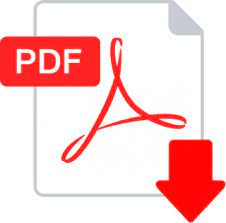Pengaruh Penerapan UKBM Terhadap Hasil Belajar Mata Pelajaran Bahasa Jepang Siswa SMA
DOI:
https://doi.org/10.34010/js.v9i1.3486Abstract
UKBM is a learning process which is arranged in a sequence ranging from an easy to a difficult one. In UKBM system of Japanese language, the students are provided Learning Text-books (BTP) in accordance with basic learning competence (KD). SMA 1 Salatiga is one of the schools that has been using UKBM, that is why it became the object of the research. This study aims to investigate the influence UKBM system towards the students’ learning outcomes in SMA 1 Salatiga. It was conducted by quantitative descriptive method with 73 students as respondents with proportionate stratified random sampling technique. The data collection technique used documentation and questionnaires. The obtained were tested using the Product Moment and produced rhitung is greater than rtabel to a 5% (0.617> 0.227). The result of the calculations is 38%, which means that the application of UKBM in the learning process can influence on the students’ Japanese language learning outcomes by 38%, while the remaining of 62% is determined by other factors.
Keywords: The Effects, Application of UKBM, Japanese Language Learning Outcomes.
Downloads
Published
Issue
Section
License
- Authors retain copyright and grant the journal right of first publication with the work simultaneously licensed under a Creative Commons Attribution License that allows others to share the work with an acknowledgement of the work's authorship and initial publication in this journal.
- Authors are able to enter into separate, additional contractual arrangements for the non-exclusive distribution of the journal's published version of the work (e.g., post it to an institutional repository or publish it in a book), with an acknowledgement of its initial publication in this journal.
- Authors are permitted and encouraged to post their work online (e.g., in institutional repositories or on their website) prior to and during the submission process, as it can lead to productive exchanges, as well as earlier and greater citation of published work (See The Effect of Open Access)











.jpg)

